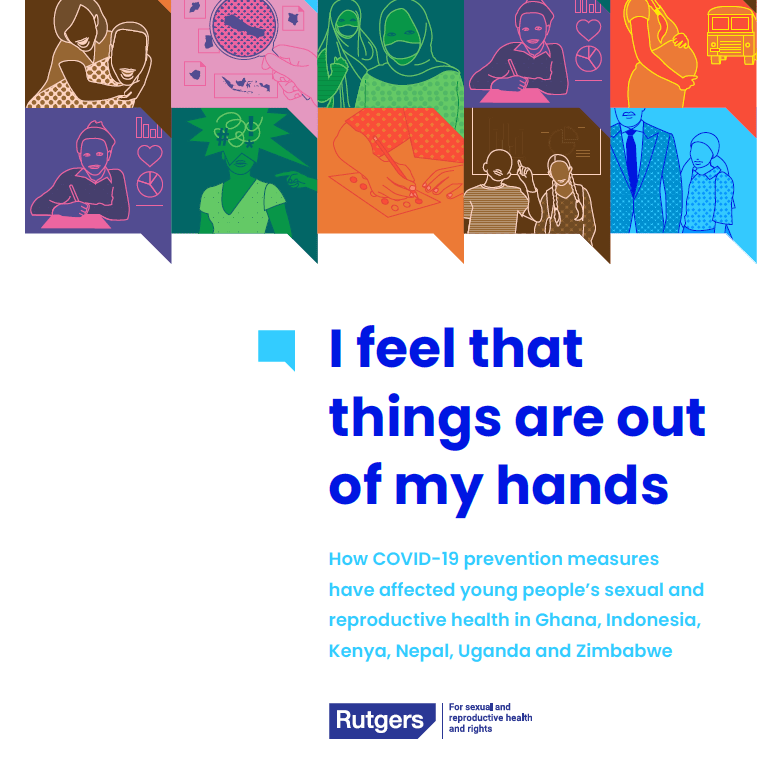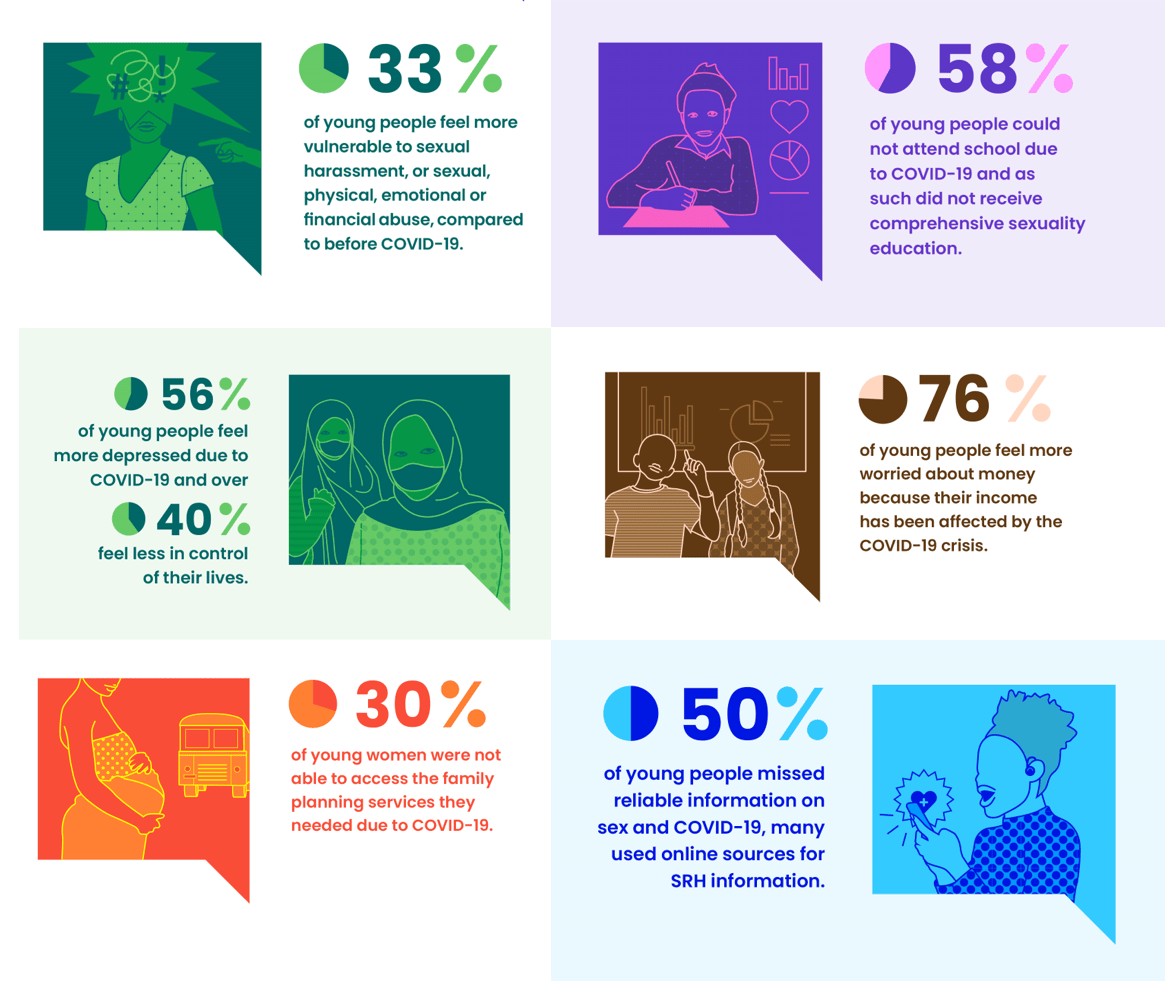Rutgers study: COVID-19 measures have huge impact on all aspects of young people’s lives
The pandemic’s impact links all aspects of life
A main conclusion of the study, is that the response to the pandemic hit young people’s lives in many ways, and there was clear interlinkage between the effects. 76% of young people in the study worried more about money, as their income was reduced during lockdown. More than half reported feeling depressed and 40% felt less in control of their lives. Worries about income and mental health issues led to poorer sexual and reproductive health, for example through an increase of child marriages or unintended pregnancies.
Sex ed skipped in home schooling
Home schooling proved to be an issue for many young people in the researched countries. 58% of young people said they missed school at least temporarily and therefore did not receive adequate sexuality education. Inequalities also played a role here, as young people in rural areas did not have easy access to online education. For young people with disabilities there was a lack of appropriate learning tools, for example books in braille. School closures also led to increase in gender-based violence and teenage pregnancies.
Lack of services and information
Services were not or hardly accessible for young people. 30% of young women reported not being able to access the family planning services they needed. STI and HIV testing and clinics, as well as safe abortion care, were also less available. Half of all young people missed reliable information about sex and COVID-19. They resorted to online sources, such as social media groups, which they were uncertain they could trust.
Young people more vulnerable
The indirect impact of the COVID-19 pandemic has made young people more vulnerable. Especially those at-risk before the crisis, have been hit hard. Stigma and harassment has increased for young LGBTI people and sex workers. Young people with disabilities or living with HIV experienced more marginalisation. To improve young people’s sexual and reproductive health and rights, countries should invest in strengthening their healthcare and tackling inequalities.
This research was conducted by Rutgers on behalf of the Right Here Right Now and Get Up Speak Out programme.
Click the button below to read the full report:
Rutger’s Study- Covid-19 measures have huge impact all aspects young peoples lives
Source: Rutgers



